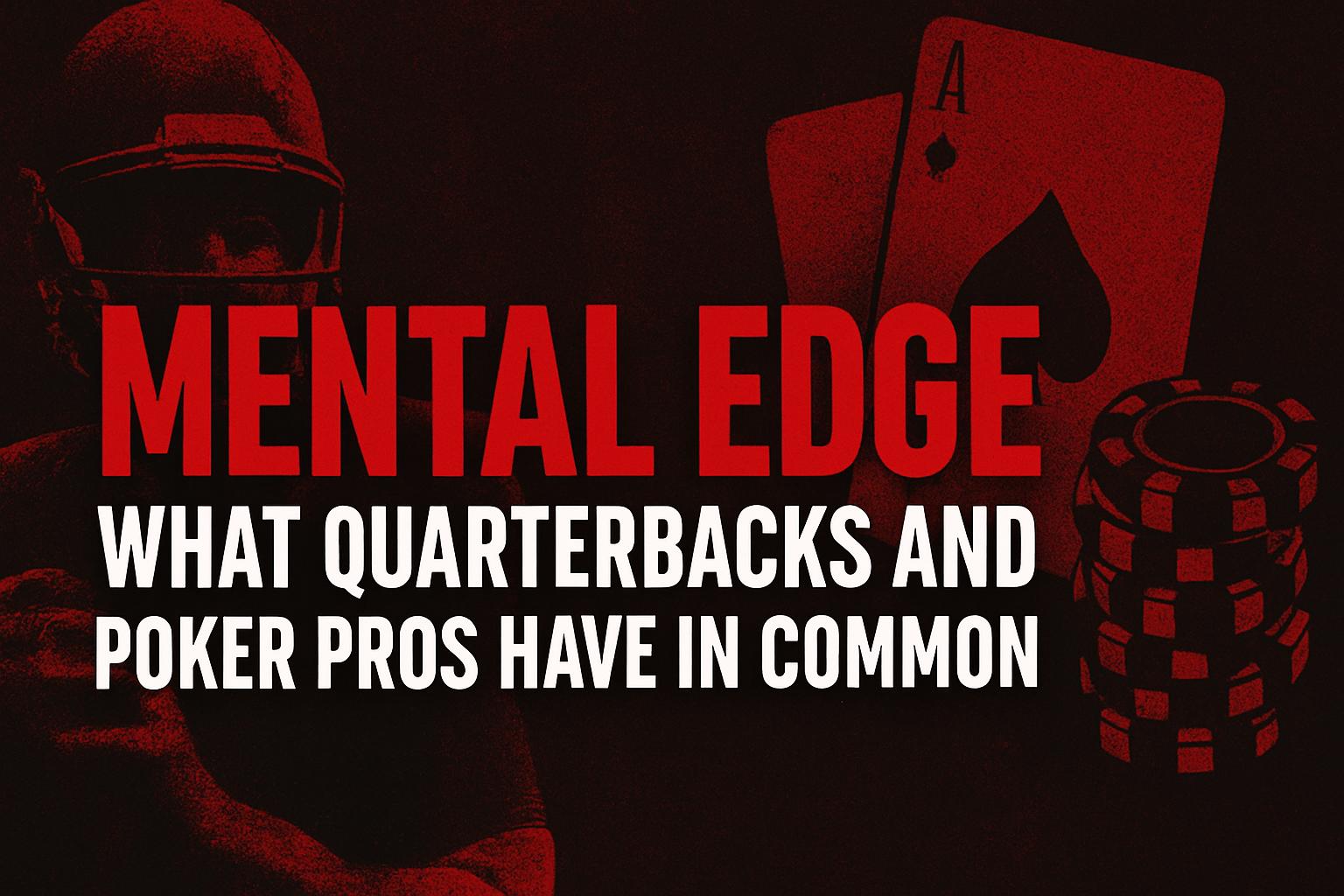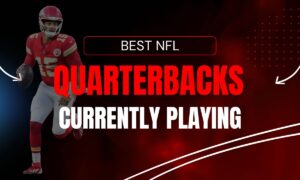Many non-Americans just do not get football, thinking it is a stupid sport where big men crash into each other looking to advance an egg-shaped ball down a grass field. But the reality is that football is a highly strategic activity that requires athletes to excel in high-pressure situations that are emotionally charged and physically dangerous.
While the latter aspect does not hold for poker, the world’s most famous card game is also a pastime that demands tremendous situational awareness, composure, psychological resilience, high adaptability, and high-end risk management skills. Hence, in both games, those who can read opponents, stay calm, and can navigate uncertainty will have a dramatic edge over the competition.
Quarterbacks are most aptly comparable to a professional poker player out of anyone on the football field because of the strategic parallels between the two roles. QBs are decision-makers, leaders, and strategists. Therefore, both them and poker pros have high analysis skills, pattern recognition ones, and the ability to make quick judgment calls based on incomplete information, especially under duress. They also must show the capability to recover from bad beats. Those at the top of the heap in these professions also share that they rigorously study opponents and usually have a track record of admirable mental stamina.
Below, we dive a bit deeper into how these two types of specialists leverage what capabilities they share to dominate their respective arenas.
Awareness in High-Stakes Situations
Quarterbacks and poker pros are usually terrific at decoding complex, fast-moving environments. QBs like Tom Brady scan defenses pre-snap, spotting blitzes or disguised coverages, whereas someone like Daniel Negreanu reads opponents’ patterns and physical tells even when most cannot see any. Without question, such skills can only be honed through relentless preparation in both fields.
Quarterbacks study film for hours. They read stat sheets and even run computer simulations. Thus, they have an idea of what is most probable to happen, which lets them anticipate most potential occurrences. Poker pros, on the other hand, especially those heavily into real money online poker, use software like PokerTracker to analyze hand histories of the people they have a high likelihood of facing in upcoming competitions.
Vanessa Selbst, the only woman to ever be ranked number one worldwide by the Global Poker Index, boasting over $12 million in career live earnings, credits her Yale Law-trained analytical mind for being able to swiftly pick up on opponents’ tendencies. Such pattern recognition turns what most see as chaos into opportunity, which is something that top QBs are also able to do—make accurate reads and anticipate. Quarterbacks look to predict things like defensive rotations, while poker players anticipate opponents’ ranges, folding marginal hands to avoid traps.
Staying Cool When It Matters Most
Clutch performances underscore this skill. There is no doubt about that, and keeping one’s heart rate in check when the chips are on the line is a critical mental skill that poker players and QBs must have in spades. Emotional control directly impacts performance, we all know that, and pressure defines both professions, as one mistake can ruin an entire game.
In poker, the pressure is as much financial as it is competitive, and the same holds for NFL QBs, or anyone who plays football professionally. Nonetheless, as pointed out above, QBs also face pressure from physical threats, game time constraints, and the weight of team expectations. Poker is a solo endeavor, and unless a player is backed by a sponsor, he is playing for himself. Still, some may argue that the phenomenon known as tilt, when emotions make gamblers engage in reckless betting, compounding stress, the psychological strain in poker. Moreover, mind games are more of a factor in poker. Football has this as well, but the way mental warfare gets played on the field is not as psychosocially draining. Still, in the two arenas, individuals try to maintain clarity amidst chaos, although accomplishing this all the time is impossible, as no one can continuously suppress panic to keep performing as desired.
To do their best in keeping cool, poker pros usually do mental resets, engage in deep breathing, and try to maintain neutral body language to fool opponents about what is really going on in their heads. Most top QBs have admitted to employing the same mindfulness-based breathing discussed, visualizing how they want plays to come together, and creating mental anchors that signal focus and block distractions.
Balancing Aggression & Caution
Some may call this risk management, as danger is inherent and continuously looms in both fields. Success in poker and football, without argument, primarily hinges on calculated decisions, assessing probabilities under time constraints. Quarterbacks weigh deep throws against check-downs, while card gamblers decide when is the right time to bluff or fold, even though they may not want to.
It is all about knowing how to maximize winning in the long term. When to sacrifice a moment for a potentially better payout down the road. Balancing risk ensures survival in card tournaments, and that applies to tight games. Aggressive throws can score touchdowns, but it is cautious plays that maintain leads. There is a time and place for both, as bold plays inspire, while cautious ones stabilize. Again, it is all a matter of reliance on probability assessment. In poker, the risks are financial and solitary, and in football, they are chiefly physical and team-oriented, but both demand a mental calculus to blend boldness with restraint.






